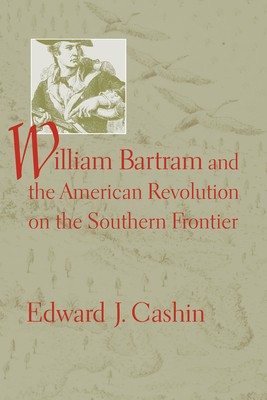
- We will send in 10–14 business days.
- Author: Edward J Cashin
- Publisher: University of South Carolina Press
- ISBN-10: 1570036853
- ISBN-13: 9781570036859
- Format: 15.2 x 22.9 x 2.2 cm, minkšti viršeliai
- Language: English
- SAVE -10% with code: EXTRA
William Bartram and the American Revolution on the Southern Frontier (e-book) (used book) | bookbook.eu
Reviews
Description
A detailed look into what Bartram omits in Travels and why
In Travels, the celebrated 1791 account of the "Old Southwest," William Bartram recorded the natural world he saw around him but, rather incredibly, omitted any reference to the epochal events of the American Revolution. Edward J. Cashin places Bartram in the context of his times and explains his conspicuous avoidance of people, places, and events embroiled in revolutionary fervor.
Cashin suggests that while Bartram documented the natural world for plant collector John Fothergill, he wrote Travels for an entirely different audience. Convinced that Providence directed events for the betterment of mankind and that the Constitutional Convention would produce a political model for the rest of the world, Bartram offered Travels as a means of shaping the new country. Cashin illuminates the convictions that motivated Bartram--that if Americans lived in communion with nature, heeded the moral law, and treated the people of the interior with respect, then America would be blessed with greatness.
In addition Cashin offers a detailed portrait of the often overlooked southern frontier on the eve of the Revolutionary War, revealing it to have been a coherent entity united by an uneasy coexistence of Native Americans and British colonials.
EXTRA 10 % discount with code: EXTRA
The promotion ends in 21d.10:44:35
The discount code is valid when purchasing from 10 €. Discounts do not stack.
- Author: Edward J Cashin
- Publisher: University of South Carolina Press
- ISBN-10: 1570036853
- ISBN-13: 9781570036859
- Format: 15.2 x 22.9 x 2.2 cm, minkšti viršeliai
- Language: English English
A detailed look into what Bartram omits in Travels and why
In Travels, the celebrated 1791 account of the "Old Southwest," William Bartram recorded the natural world he saw around him but, rather incredibly, omitted any reference to the epochal events of the American Revolution. Edward J. Cashin places Bartram in the context of his times and explains his conspicuous avoidance of people, places, and events embroiled in revolutionary fervor.
Cashin suggests that while Bartram documented the natural world for plant collector John Fothergill, he wrote Travels for an entirely different audience. Convinced that Providence directed events for the betterment of mankind and that the Constitutional Convention would produce a political model for the rest of the world, Bartram offered Travels as a means of shaping the new country. Cashin illuminates the convictions that motivated Bartram--that if Americans lived in communion with nature, heeded the moral law, and treated the people of the interior with respect, then America would be blessed with greatness.
In addition Cashin offers a detailed portrait of the often overlooked southern frontier on the eve of the Revolutionary War, revealing it to have been a coherent entity united by an uneasy coexistence of Native Americans and British colonials.


Reviews